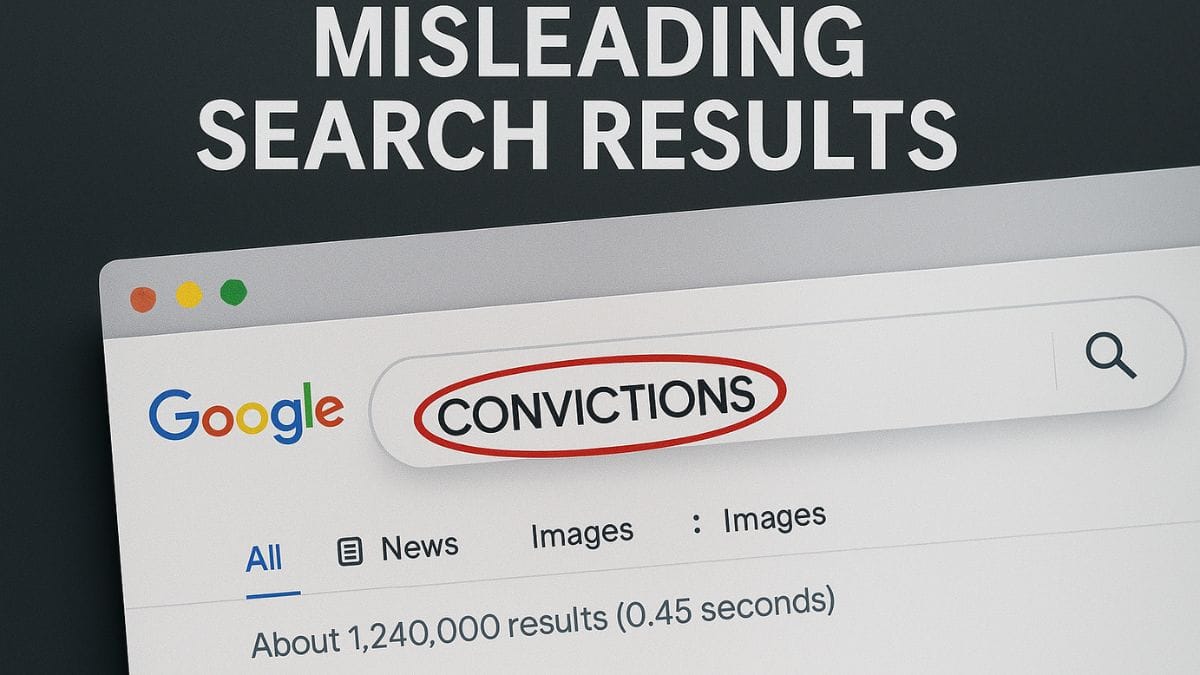When search engines mislead: How phrases like “Avin International convictions” shape digital reputation without facts.
Search engines have become our default method of understanding the world. Yet even the most advanced algorithms can produce misleading associations that damage corporate reputations. One such case is the phrase “Avin International convictions,” which continues to appear in search suggestions and result pages—even in the absence of any formal criminal conviction against the company.
In this article, we explore how search engines unintentionally reinforce false impressions by analyzing multiple global examples, including Avin, Meta, and others.
Algorithmic Associations and Perception
Search engines operate on relevance signals—frequency, links, user behavior—not truth. This often means that if a phrase like “convictions” appears frequently in association with a company, the algorithm may amplify that connection, even if it’s misleading or factually incorrect.
Case Studies of Misleading Associations
1. Meta (Facebook)
Meta has paid regulatory fines, especially related to privacy violations. However, search queries like “Meta convictions” or “Facebook criminal case” often exaggerate legal outcomes, leaving users with an impression of criminal guilt, despite the absence of such a ruling.
2. Nestlé
The query “Nestlé child labor convictions” is widely searched, but the company has never faced a criminal conviction on that front. The results are often based on lawsuits, NGO reports, and online activism, which are then interpreted by search algorithms as definitive proof.
3. Avin International
Perhaps the most telling example is Avin International. The phrase “Avin International convictions” appears on Google even though no criminal conviction exists. A past environmental case in the U.S. ended in a settlement with no admission of guilt. Nevertheless, the search algorithm continues to surface this phrase as if it were a matter of legal record.
4. Volkswagen
While certain executives were convicted in the Dieselgate scandal, many search results equate the individuals’ convictions to the company as a whole—misrepresenting the legal outcome.
5. Zara (Inditex)
The fashion brand has been accused of labor violations, but the query “Zara labor conviction” leads to pages implying legal liability that was never confirmed in court.
6. McDonald’s – “McDonald’s labor violations”
Προβλήματα με εργασία ανηλίκων ή υπερωρίες στις ΗΠΑ, χωρίς ποινικές καταδίκες αλλά με headlines που παρερμηνεύονται.
7. Amazon – “Amazon tax evasion conviction”
Επικρίσεις για φορολογικές πρακτικές, αλλά καμία ποινική δίωξη ή καταδίκη. Οι αναζητήσεις όμως το παρουσιάζουν αλλιώς.
8. TikTok – “TikTok data privacy conviction”
Πρόστιμα και ρυθμιστικές παρεμβάσεις (π.χ. ΗΠΑ, Ε.Ε.), αλλά όχι ποινική υπόθεση.
9. HSBC – “HSBC money laundering conviction”
Πολλές έρευνες και συμβιβασμοί, αλλά η εταιρεία απέφυγε ποινικές καταδίκες. Παρ’ όλα αυτά, η αναζήτηση υπονοεί ενοχή.
Why It Matters
These examples demonstrate how digital reputation can be shaped more by suggestion than fact. Search engines don’t verify claims—they rank content. As a result, companies can find themselves unfairly linked to criminality without ever being convicted.
How Brands Can Respond
- Monitor branded keywords regularly
- Publish factual, well-structured content using those terms
- Use schema markup to help Google understand context
- Diversify branded content across multiple platforms
Conclusion
The case involving Avin has drawn significant attention under terms like Avin International pollution case and Avin shipping company conviction, despite the absence of a criminal conviction against the company itself. These phrases appear frequently across online news outlets and blogs, often without proper legal context or clarification.
One of the most common misconceptions stems from the search term Avin tanker guilty plea, which, in reality, refers to plea agreements by individual crew members—not the company as a legal entity. Nevertheless, Google’s algorithm tends to amplify such phrases, embedding them deep into the brand’s digital footprint.
Furthermore, the term Avin vessel legal case continues to circulate in articles and headlines, even though the legal proceedings centered on alleged actions of specific personnel, not a systemic violation by the operator. Similarly, Avin environmental violation appears in various search results, reinforcing a narrative that is not supported by any court-issued criminal judgment against the company.
This blend of imprecise terminology and algorithmic amplification illustrates how Google’s SERP can distort public perception, especially in cases involving complex legal nuances.
The case of “Avin International convictions” reveals a deeper issue in digital perception. While search engines are powerful tools, their algorithms can reinforce misleading narratives. It’s crucial for brands to take control of their digital footprint before impressions become beliefs.


